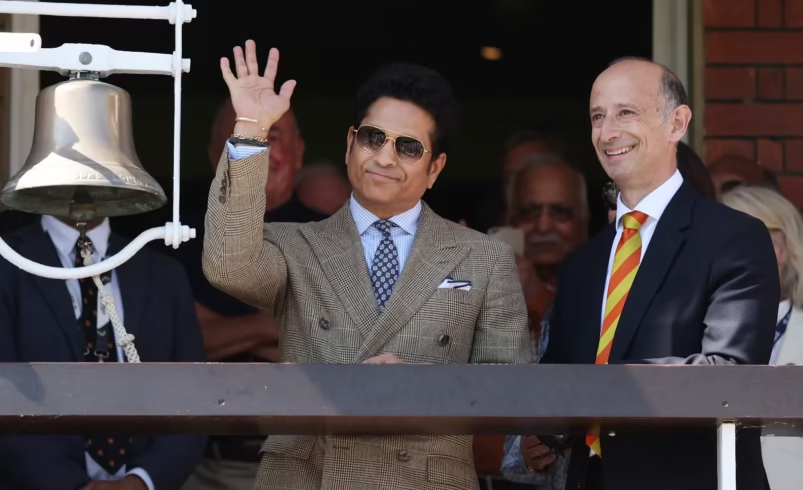Sachin Tendulkar Honored with Portrait Unveiling at Lord’s
- July 11, 2025
- 0

On Thursday, cricket legend Sachin Tendulkar received a special tribute at Lord’s Cricket Ground. A portrait of Tendulkar, crafted by artist Stuart Pearson Wright, was unveiled in the Marylebone Cricket Club (MCC) Museum. This event coincided with the opening day of the third Test match between England and India. The portrait will remain in the museum until later this year before being moved to the Pavilion. The Lord’s Portrait Programme, which has been active for three decades, is part of MCC’s long-standing tradition of collecting art and artefacts since the Victorian era. The MCC Museum, established in the 1950s, holds the distinction of being Europe’s oldest sporting museum.
In addition to the portrait unveiling, Tendulkar had the honor of ringing the iconic five-minute bell to commence the first day of the Test match between India and England. This match is part of a five-match series for a trophy named after Tendulkar and James Anderson, currently tied at 1-1.
During the unveiling ceremony, Tendulkar engaged in light-hearted banter with MCC’s Mark Nicholas. Nicholas humorously remarked on Tendulkar’s absence from the Lord’s Honours Board, which lists players who have scored centuries or taken five-wicket hauls at the venue. Tendulkar responded by recalling a memorial game in 1998 where he scored a hundred against top bowlers like Glenn McGrath and Allan Donald. Despite not making it onto the Honours Board, Tendulkar expressed contentment with his achievements.
Sachin Tendulkar is celebrated as one of cricket’s greatest batters. His international career spanned 24 years from 1989 to 2013, during which he amassed an unparalleled 34,357 runs across Test matches, One-Day Internationals, and T20 Internationals for India. This total surpasses that of Kumar Sangakkara, who holds the second-highest run tally with 28,016.
The portrait unveiled at Lord’s was painted from a photograph taken by Pearson Wright at Tendulkar’s home in Mumbai 18 years ago. The artist employed oil on abraded aluminium to create an abstract background that symbolizes Tendulkar’s timeless appeal, transcending specific eras or locations.